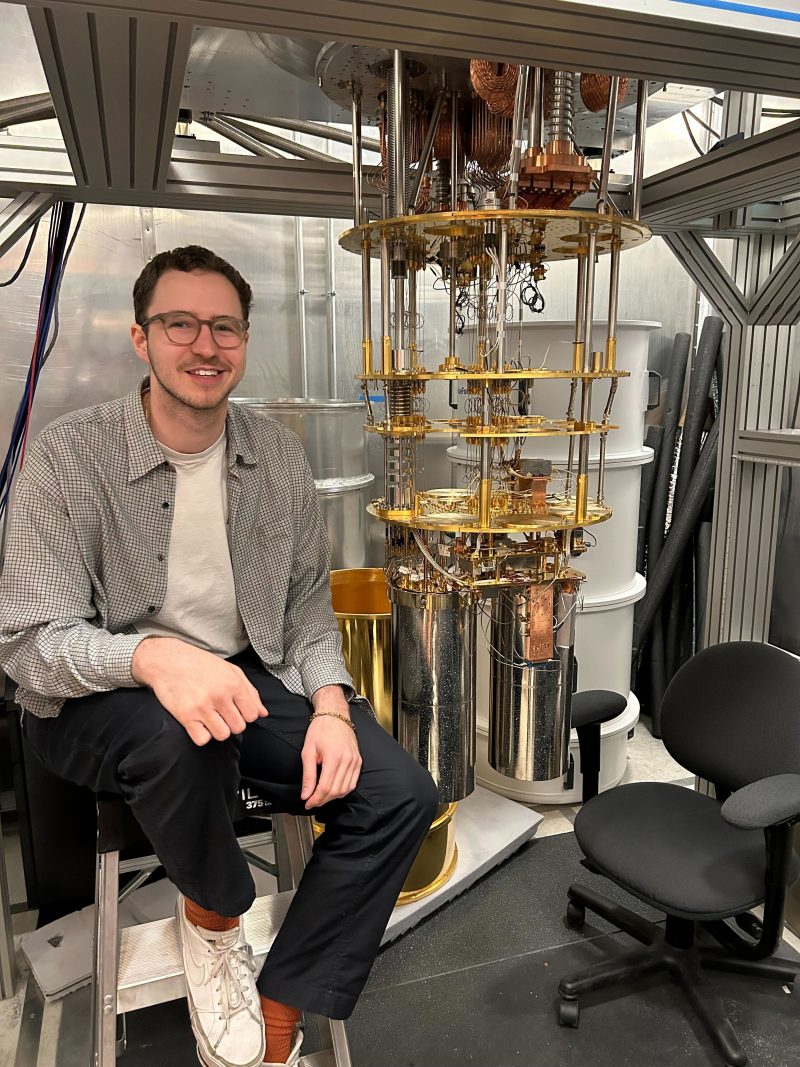Berkeley Lab Researchers Make Advancements in Qutrit-based Quantum Information Processing

A collaboration between the Advanced Quantum Testbed (AQT) at Lawrence Berkeley National Laboratory (Berkeley Lab) and the University of California, Berkeley’s Quantum Nanoelectronics Laboratory (QNL) resulted in a significant advancement using qutrits on a superconducting quantum processor. “At the Advanced Quantum Testbed, we are interested in exploring new physics that can enable building better quantum processors, and learning how to design and control qutrits is a unique part of that mission,” explained Noah Goss, a Berkeley graduate student and the lead researcher on the collaboration.
Qutrits, or three-level quantum systems, are quantum bits (qubits) with three distinct states instead of the usual two states of classical bits or qubits. While qubits are the fundamental building blocks of quantum computing, qutrits offer several advantages and hold significant importance in the field of quantum information processing.
Benefits of Qutrits
There are many benefits to utilizing qutrits instead of qubits for quantum computing. Qutrits can represent and process more information compared to qubits. A qutrit can encode more classical information with three states, enabling more complex computations and storage capabilities. This enhanced capacity is advantageous in certain computational tasks, such as machine learning algorithms or solving optimization problems. Additionally, qutrits can improve noise and error resilience compared to qubits. Quantum systems are prone to errors due to decoherence and other noise sources. By using qutrits, which have more states available, it is possible to implement error-correcting codes that are more robust and better able to detect and correct errors, thus increasing the overall stability and reliability of quantum computations.
Exploring Qutrit Capabilities
In a late 2022 paper in Nature Communications, the U.C. Berkeley researchers further explored the possible benefits of implementing a qutrit system. In this research, the teams were able to entangle two universal qutrit gates. As qutrits offer the possibility of higher-dimensional entanglement, they can provide richer correlations and enable new communication and computation protocols. Utilizing the extra dimension of qutrits, researchers can explore novel schemes for quantum teleportation, quantum cryptography, and distributed quantum computing. According to the Berkeley Lab press release: “Using the cycle benchmarking method from AQT’s previous qutrit work with industry collaborator, Keysight Technologies, the team measured a process fidelity for a two-qutrit entangling gate of up to 97.3%, decreasing the infidelity from previous efforts by a factor of around four. Furthermore, for the first time in the study of qutrits, AQT researchers applied and generalized another established protocol – cross-entropy benchmarking – for characterizing gate noise and determining the fidelity of gate operations.”
For Berkeley researchers like Goss, the paper’s lead author, the findings of this study were incredibly exciting. “A combination of different works in AQT and QNL enabled us to get to this point, where we can characterize and understand the physics with qutrit logic gates well,” he stated in the press release. “We synthesized a lot of previous expertise, and took it a step further in the experiment, by introducing an interaction for qutrits with a high degree of control and which had not been studied before.”
Kenna Hughes-Castleberry is a staff writer at Inside Quantum Technology and the Science Communicator at JILA (a partnership between the University of Colorado Boulder and NIST). Her writing beats include deep tech, quantum computing, and AI. Her work has been featured in Scientific American, New Scientist, Discover Magazine, Ars Technica, and more.





















